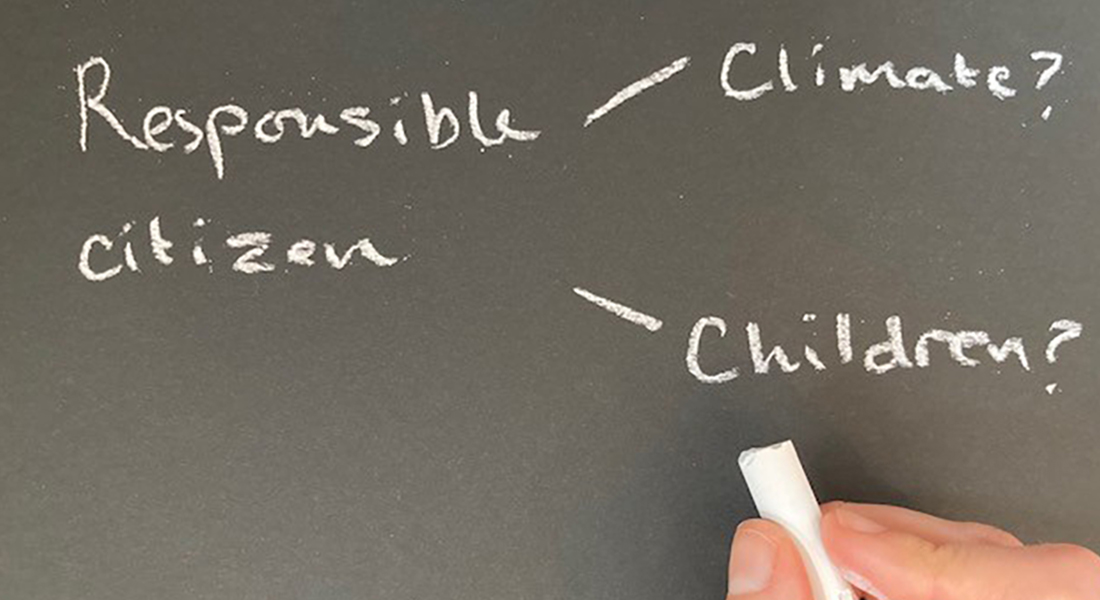ReproCitizen: Responsible Reproductive Citizenship in Denmark the 21st Century
|
ReproCitizen investigates how a responsible reproductive and sustainable citizenship is (re)constituted in the tension between (inter)national discussions about climate change and ‘overpopulation’, a lurking national ‘fertility crisis’ (declining fertility rates) and Danish pro-natalist fertility awareness initiatives. |

(Danish summary below)
Through the mapping of campaigns and media debates as well as qualitative interviews with young Danes, the project examines how these tensions emerge in the Danish context and, particularly, how young Danes embody and negotiate their reproductive futures and what it means to be a responsible citizen.
Work package 1
SUSTAINABLE POPULATION POLITICS
This subproject focuses on the political-discursive level where national strategies on fertility and sustainability are presented and negotiated. Mapping the involved social agents, institutions, campaigns, and media debates, this part of the project asks how the tension of ‘fertility crisis’ and ‘climate crisis’ emerges in the context of the Danish welfare state between 2010-2021. Empirically, this work package draws on Danish newspaper articles, policy documents, scientific journal papers, social media, visual materials from campaigns, educational material and interviews with central agents in the field.
WP1 Coordinator(s):
Anna Sofie Bach and Michala Hvidt Breengaard
Work package 2
SUSTAINABLE CITIZENSHIP
This subproject examines how climate activists in Denmark put sustainable lifestyles on the agenda and negotiate the meaning of a ‘responsible life’. Through qualitative interviews and social media analysis, WP2 particularly investigates young activists' navigation of ideas of children, family, and sustainable living.
WP2 Coordinator:
Michala Hvidt Breengaard
Work package 3
REPRODUCTIVE CITIZENSHIP
In this subproject, we engage with a broad spectrum of Danish youth, not necessarily engaged in climate activism. Based on focus-groups developed to explore narratives of the future, this subproject investigates considerations about whether, when, and how to have children.
WP3 Coordinator:
Anna Sofie Bach
PODCAST: Er klimakrisen skyld i, at vi får færre børn?
22 January 2022, Kristeligt Dagblad
Klimakrisen har rykket ved normen om, at børn at børn er en naturlig del af livet.
2 August 2021, Politiken
Andreas vil ikke have børn: "Jeg er ikke tryg ved tanken om, at de vokser op i en verden, hvor katastrofer, sociale sammenbrud og kamp om ressourcer bliver en uundgåelig del af det". Link to the article.
24 April 2021, Information
En ny bevægelse af unge fravælger børn på grund af klimaet. Link to the article.
Will be updated when available.
|
I 2019 udsendte en gruppe internationale forskere en advarsel om den forestående klimakrise. De peger blandt andet på ’overbefolkning’ som en afgørende hindring for en bæredygtig fremtid. Budskabet om ’færre børn’ har vakt genklang blandt visse unge klimaaktivister, som har sat ”fødselsstrejke” på dagsordenen, bl.a. på de sociale medier, med det formål at få deres regeringer til at handle på klimaforandringerne. Samtidig har den danske Sundhedsstyrelse foreslået at indføre ’prækonceptionel rådgivning’ til alle kvinder i alderen 18-30 år med det formål at få danske unge til at forholde sig til deres fertilitet – en problemstilling som tidligere er blevet formidlet i den opsigtsvækkende kampagne ’Har du talt dine æg i dag?’ og DR1 programmet ’Knald for Danmark’ (2015). Udover at imødekomme problemer med infertilitet hos den enkelte, reflekterer disse tiltag også en national bekymring for det faldende befolkningstal og den afledte ’ældrebyrde’, som truer det danske velfærdssamfund. |
ReproCitizen undersøger, hvordan disse reproduktive dilemmaer udfolder sig i en dansk kontekst og ser særligt på, hvordan unge ansvarliggøres i forhold til både deres egen fertilitet og vores fælles fremtid. Gennem en kortlægning af nationale kampagner og mediedebatter såvel som kvalitative interviews med unge danskere udforsker ReproCitizen, hvordan klimakrisen såvel som det øgede fokus på fertilitet påvirker de unges forestillinger om et ansvarligt bæredygtigt og reproduktivt liv
Funded by:
ReproCitizen has received funding from The Independent Research Fond Denmark
Project: ReproCitizen
Period: 2021 - 2024
Contact
Anna Sofie Bach (PI)
P: + 45 35 32 37 29
E: aba@soc.ku.dk
W: Research profile
Michala Hvidt Breengaard
E: mhb@edu.au.dk
W: Research profile
Researchers
| Name | Title | Phone | |
|---|---|---|---|
| Anna Sofie Bach (PI) University of Copenhagen |
Postdoc | +45 353-20566 | aba@soc.ku.dk |
| Michala Hvidt Breengaard Danish School of Education (DPU) |
Postdoc | NA | mhb@edu.au.dk |

